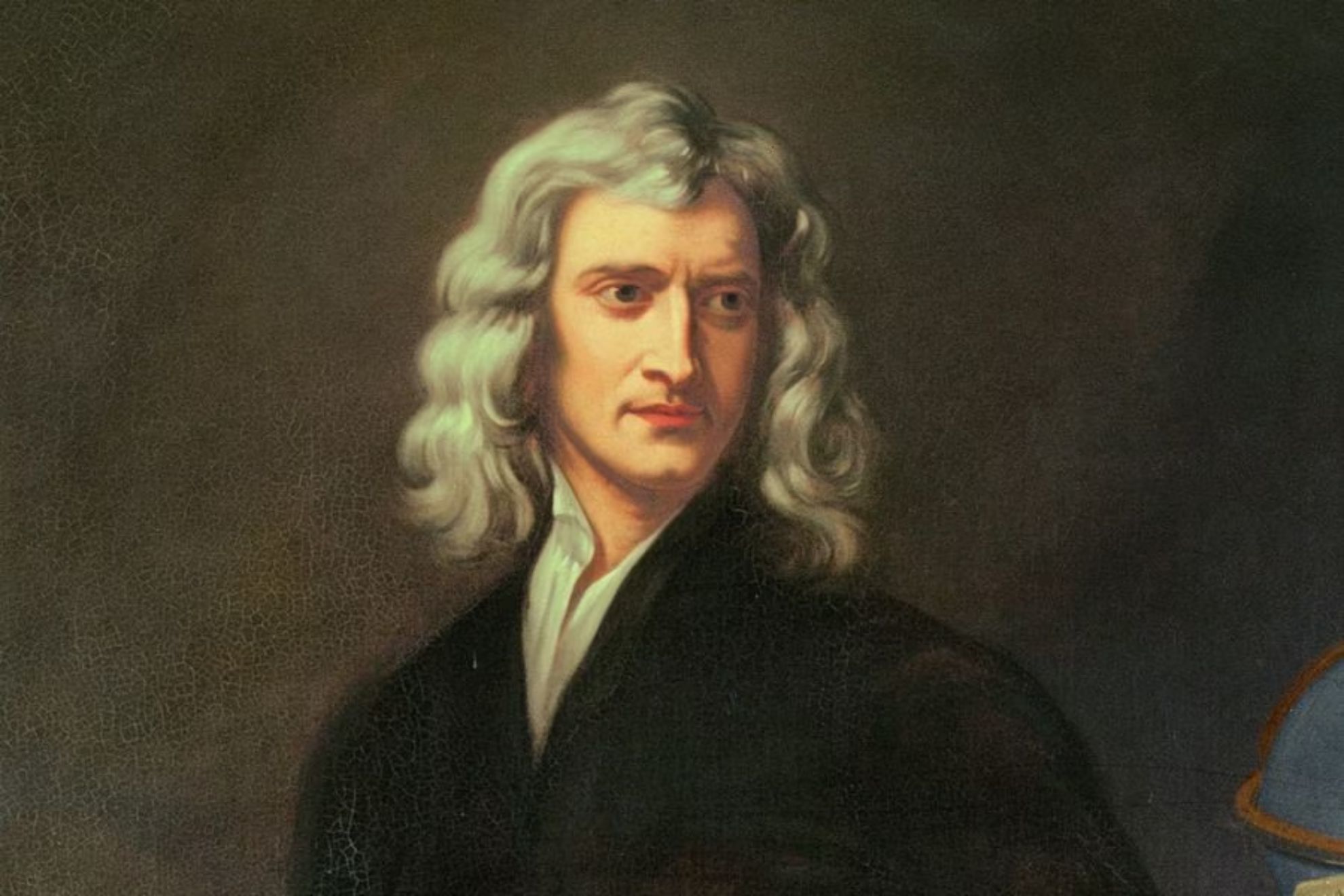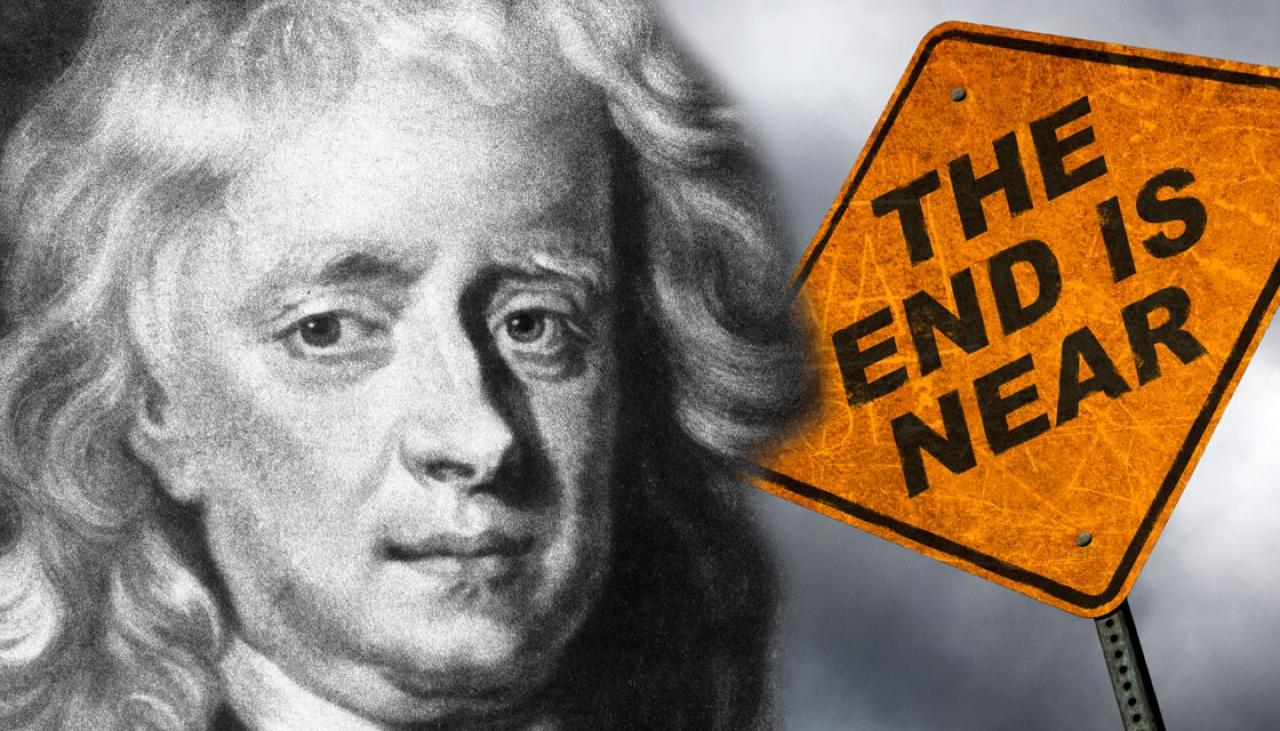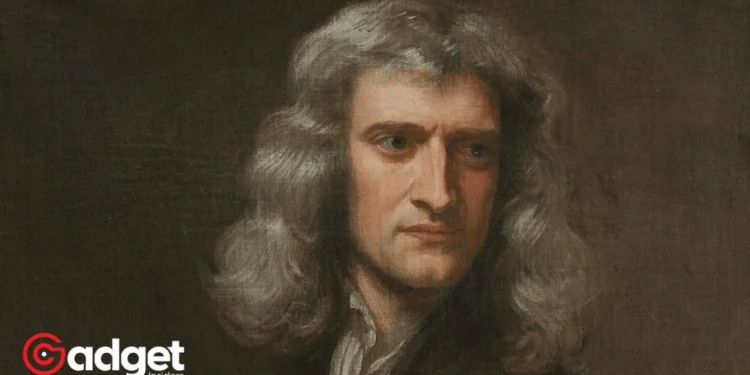Sir Isaac Newton, a titan in the annals of science, whose contributions to physics and mathematics have irrevocably shaped our understanding of the universe, remains a figure of endless fascination. Known for his groundbreaking laws of motion and universal gravitation, Isaac Newton’s intellect ventured far beyond the confines of what is teachable in modern classrooms.
Among the lesser-known facets of his genius is a prediction that continues to intrigue and mystify: the end of the world, calculated to occur in 2060.

The Eccentric Genius of Isaac Newton
Isaac Newton’s brilliance was not confined to the realms of science and mathematics. His pursuits were as varied as they were profound, ranging from the experimental—like his peculiar recommendation of toad-vomit lozenges as a cure for the bubonic plague—to the mystical realms of alchemy and theology.
It’s within this intersection of faith and foresight that Isaac Newton applied his unparalleled intellect to prophesy the apocalypse.
Drawing upon his deep Christian faith and meticulous study of the Bible, Isaac Newton embarked on a theological quest to decipher the holy prophecies. According to Stephen Snobelen, Director of the Isaac Newton Project Canada, Newton saw the scriptures as “histories of things to come,” albeit encoded in symbolic language that required nuanced interpretation.
The Apocalypse in the predictions of Jesus and Isaac Newton https://t.co/WEWMa7w1OU pic.twitter.com/SlXjhXNxBt
— x-file.today (@XfileToday) September 5, 2017
Unveiling the Apocalypse
Isaac Newton’s method for predicting the end times was as methodical as it was unconventional. He identified the onset of the Great Apostasy with the rise of the Catholic Church’s power in 800AD.
Believing that this marked the Church’s deviation from the original Christian faith, he calculated the duration of this “corruption” to last 1,260 years, based on his interpretations of the Book of Daniel. This calculation led him to the year 2060 as the date for the apocalypse.
However, Newton’s vision of the end was not one of unmitigated despair. Snobelen highlights that for Isaac Newton, 2060 would herald not just the conclusion of an era but the dawn of a new, divine kingdom on Earth.
Following the fall of the corrupt Church, Christ’s return would initiate a millennium of peace and prosperity, fulfilling the prophecy of Micah where nations would forsake war for eternal peace.

A Legacy Beyond Time
Despite the precision with which he approached his apocalyptic prediction, Isaac Newton remained cautious about the fallibility of human interpretation of divine prophecy. He was acutely aware of the potential for such predictions to bring the Bible into disrepute if they did not come to pass.
This humility, coupled with his monumental contributions to science, cements Newton’s legacy as a figure of boundless curiosity and intellect.
As we edge closer to the year 2060, the curiosity surrounding Newton’s prediction only intensifies. Will his prophetic vision find fulfillment, or will it join the annals of history as a fascinating footnote in the storied life of one of humanity’s greatest minds?
Only time will tell, but until then, the discussion around Sir Isaac Newton’s apocalyptic prophecy serves as a testament to the enduring impact of his work and the boundless nature of his intellect.










